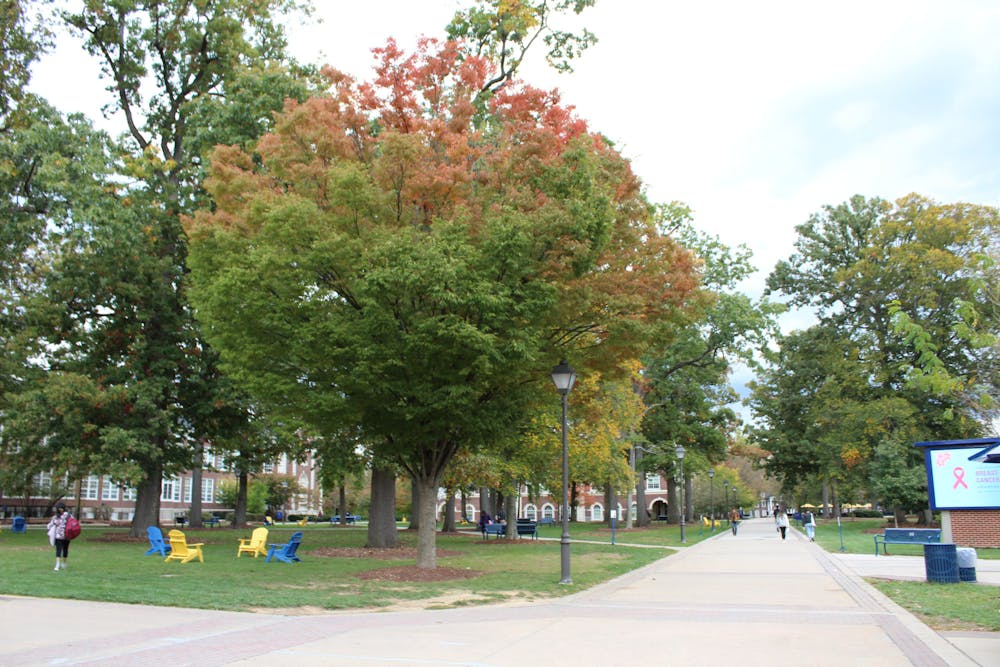By Myara Gomez
Staff Writer
The Earth is suffering from emissions that are constantly put into the air from human activities, despite peoples’ attempts to reduce their carbon footprint by driving less and turning off lights if they are not being used. With a more sustainable outlook, the College has a decarbonization plan in place to reduce its emissions and bring the campus carbon footprint as close to zero as possible.
A decarbonation plan allows the College to view their carbon footprint and decide how they can reduce carbon as well as greenhouse gas (GHG) emissions on campus. Senior Director of Sustainability and Management, Paul Romano, said the College pledged to be carbon neutral by 2040 through the American College & University Presidents’ Climate Commitment.
However, this isn’t the College’s first attempt at a decarbonization plan. Romano mentioned that in 2019 the College began requesting services to execute the plan, and in April 2020 they received proposals. But then the COVID-19 pandemic began and postponed the project entirely.
This plan will allow the College to end their use of fossil fuels, which are known as Scope 1 and 2 emissions. According to the EPA, Scope 1 are direct emissions which are emitted from company facilities and vehicles. Scope 2 are indirect emissions which come from purchased electricity, steam, heating and cooling.
The plan will ultimately benefit students and begin to help with their concerns connected to emissions and their health. According to the World Health Organization, every year about 7 million people die due to breathing in air pollution.
This is concerning to students because many of them live here and breathe in the air every day. Some students have worries about how this will affect their health over time.
“Of course I am concerned about emissions,” said junior graphic design major Para Wright. “They can be extremely hazardous to our immune systems, respiratory systems, [have a] likelihood of cancer, environmental side effects and more.”
Along with the health issues associated with emissions, there are also global concerns. These contribute to climate change which has an impact on everything on our planet.
“The emissions are bad on a global scale because they do contribute to climate change,” said senior biology and secondary education major Bryan Wood, “which causes ocean acidification [and] rising sea levels, threatening a lot of species and increasing extinction. So there are a lot of worries here.”
The College is in the process of putting the decarbonization plan into action and combating climate change. Romano said that there will be three phases to this effort: taking a survey of the College’s facilities and reviewing past studies, reviewing technologies for potential adoption, and the development of a roadmap with recommendations and goals on how to achieve this economically.
“Climate change associated with GHG emissions represents an existential crisis to our students,” said Romano. “Such efforts not only serve as a model of what is attainable on our campus, but perhaps more importantly, demonstrate that through immediate action we may demonstrate to others that financially prudent and socially responsible solutions are available now.”
He also anticipates that the cost of the study will be fully reimbursed by the NJ BPU Higher Education Decarbonization Pilot Program. According to NJ’s Clean Energy Program website, there is an incentive of up to $5 million per applicant. It also states that there are reimbursement available for up to 100% of the cost to develop a decarbonization plan.
The Environmental Sustainability Council will be keeping students and faculty up to date regularly on the progress of the plan. The group plans to organize events that will allow the campus community to voice their opinions on the decarbonization plan.
“I think it's a lofty goal but it’s definitely something we should be working toward.” said Wood, “and if we don’t have a high goal, I don’t know if we’ll ever get there.







